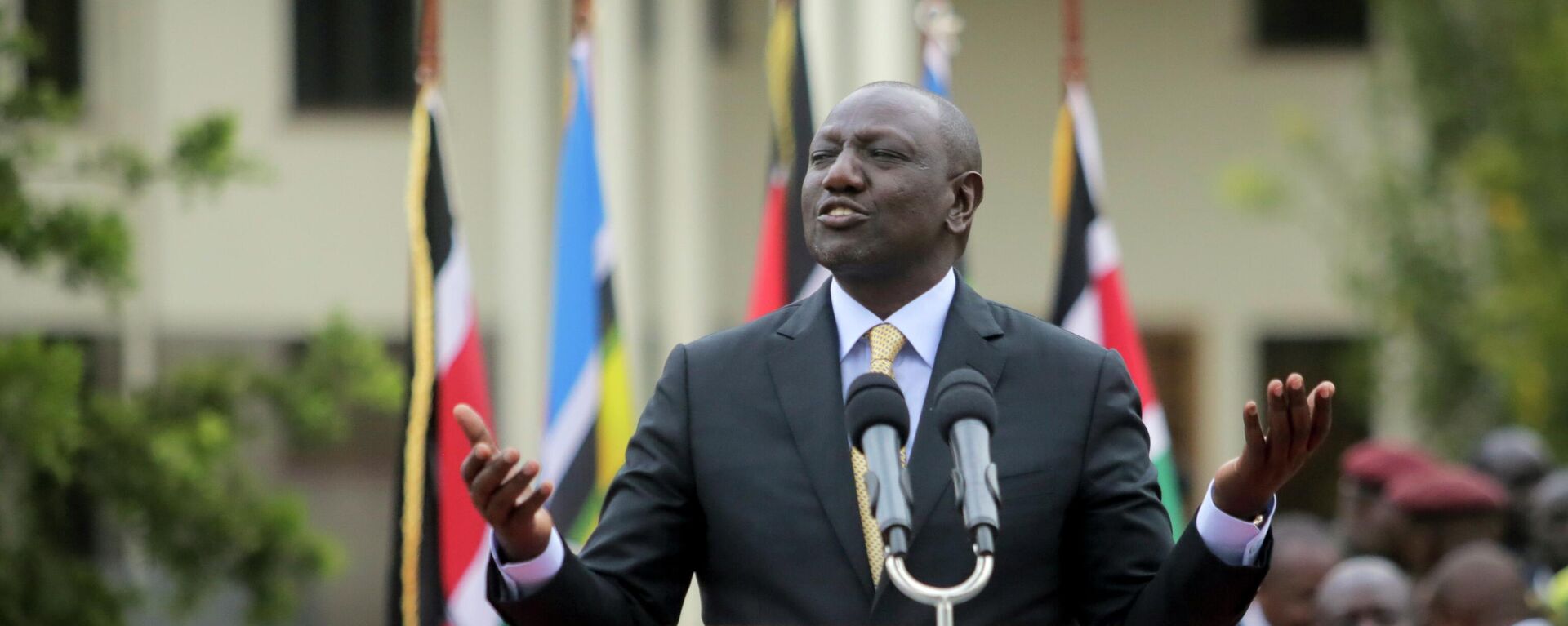IMF Forces Kenya to End Fuel Subsidies, Driving Prices Up as ‘Hustler’ Champion Ruto Takes Office

© AP Photo / Mosa'ab Elshamy
Subscribe
Despite campaigning as a representative of the “hustlers” from whom he came, Kenyan President William Ruto was forced to implement a major policy change on his first day in office that’s sure to make the lives of Kenya’s poor citizens even harder: ending a fuel subsidy that had shielded them from global price hikes.
In his inaugural speech on Tuesday in Nairobi’s Kasarani Stadium, Ruto called fuel and food subsidies “costly and ineffective,” saying that removing them would help the country climb out of a “deep economic hole” that was driving unemployment and underemployment.
“In addition to being very costly, consumption subsidy interventions are prone to abuse, distort markets and create uncertainties including artificial shortages of the very products being subsidized,” he said.
However, the decision was not his alone: the International Monetary Fund (IMF) has required Nairobi to end the subsidy by next month as part of the conditions of a 38-month loan deal made in July. The Washington, DC-based international lender is notorious for requiring recipients of its financial assistance to align their government finances with neoliberal free-market policies, including ending subsidies and regulations and cutting the government’s budget.
Accordingly, Kenya’s Energy Petroleum and Regulatory Authority (EPRA) announced it had ended price caps for Super Petrol and raised them for diesel and kerosene, beginning on October 14. The new prices are 13% higher for Super Petrol, 18% higher for diesel, and 16% higher for kerosene.

Could Ruto's Realpolitik Approach Boost Kenya's Growth, Offer New Opportunities to Russia in Africa?
9 September 2022, 17:05 GMT
Super Petrol, called Super Unleaded in the US, is a higher-octane fuel than regular gasoline that’s most commonly used in higher-end automobiles. Diesel is a common fuel for trucks, farm equipment such as tractors, and train locomotives, and kerosene is a common home fuel for cooking and lighting in the East African country.
Meanwhile, the Kenya Pipeline Company (KPC) announced last week that a fuel shortage was imminent because oil sellers had not delivered their products over fears that buyers would be unable to pay.
Since the government pays for the difference between the price cap and the market price, government finances are not insulated from global price hikes in the way that Kenyan consumers have been. In June, weeks before Nairobi took the IMF bailout, Kenyan Treasury Secretary Ukur Yatani warned that the government could soon run out of money if prices remained so high.
“The current government is between a rock and a hard place,” Aly-Khan Satchu, an economic analyst and the CEO of investment adviser Rich Management, told Reuters on Thursday. “What we are seeing here is instead of going for shock and awe of lifting all the subsidies in one go, they are doing it in a more phased manner.”
Meanwhile, Kenya has recorded high levels of inflation. The Kenyan Bureau of Statistics reported on Friday that commodity prices in the East African state were 8.5% higher in August 2022 than they were in August 2021 - the biggest increase in five years.
Analysts told Reuters that ending the fuel subsidy was likely to push inflation even higher.
Both ending subsidies and rising inflation have the potential to dent Ruto’s efforts to stimulate the Kenyan economy by backing “hustlers,” or small-time businesses, for whom he has created a “hustler fund” to support.

